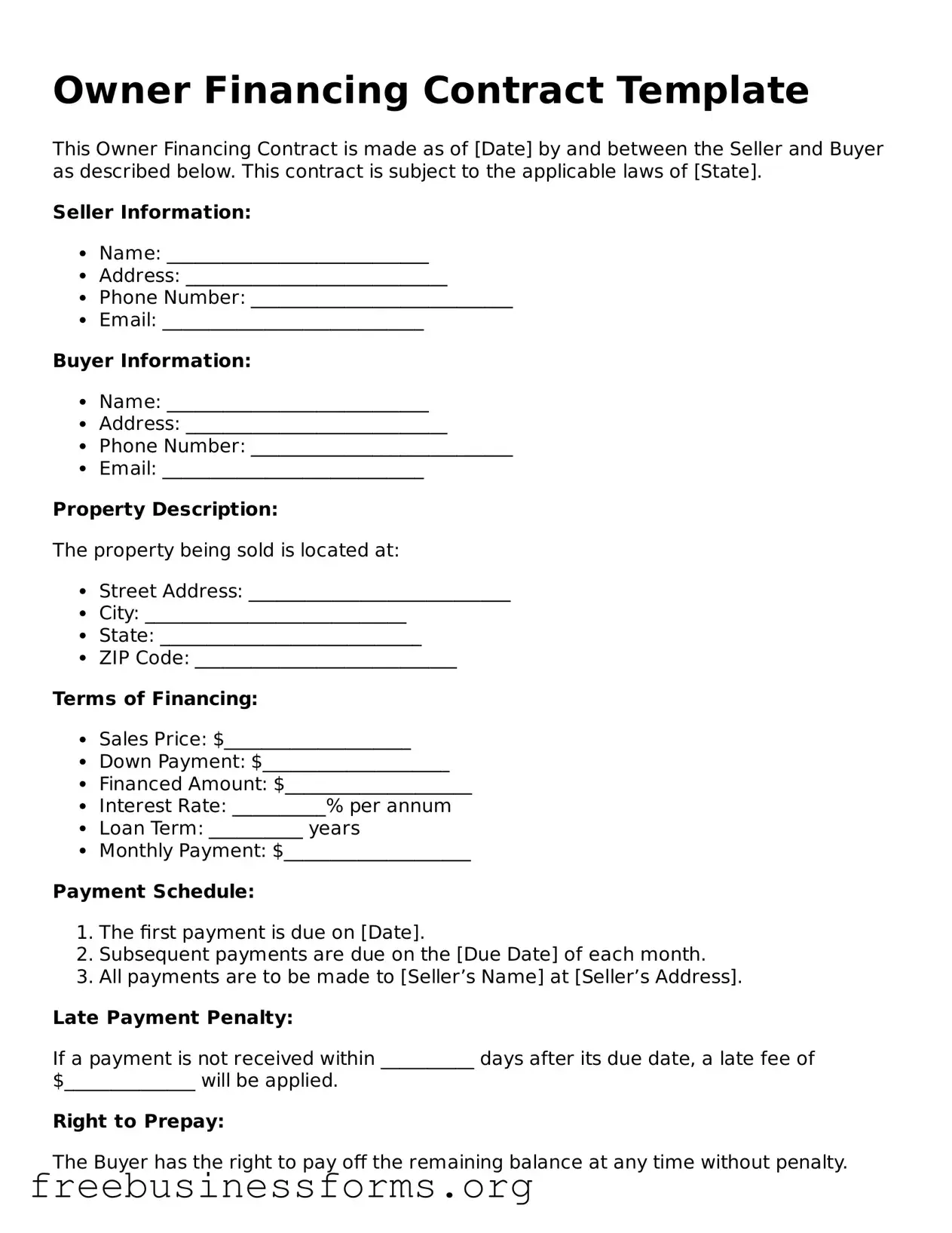Official Owner Financing Contract Form
The Owner Financing Contract is a legal document that allows a property seller to finance the purchase for the buyer directly, bypassing traditional lenders. This arrangement can provide benefits for both parties, including flexible terms and potentially lower closing costs. Understanding the key components of this contract is essential for a smooth transaction.
Open Form Here

Official Owner Financing Contract Form
Open Form Here

Open Form Here
or
↓ PDF File
Quickly complete this form online
Complete your Owner Financing Contract online quickly — edit, save, download.